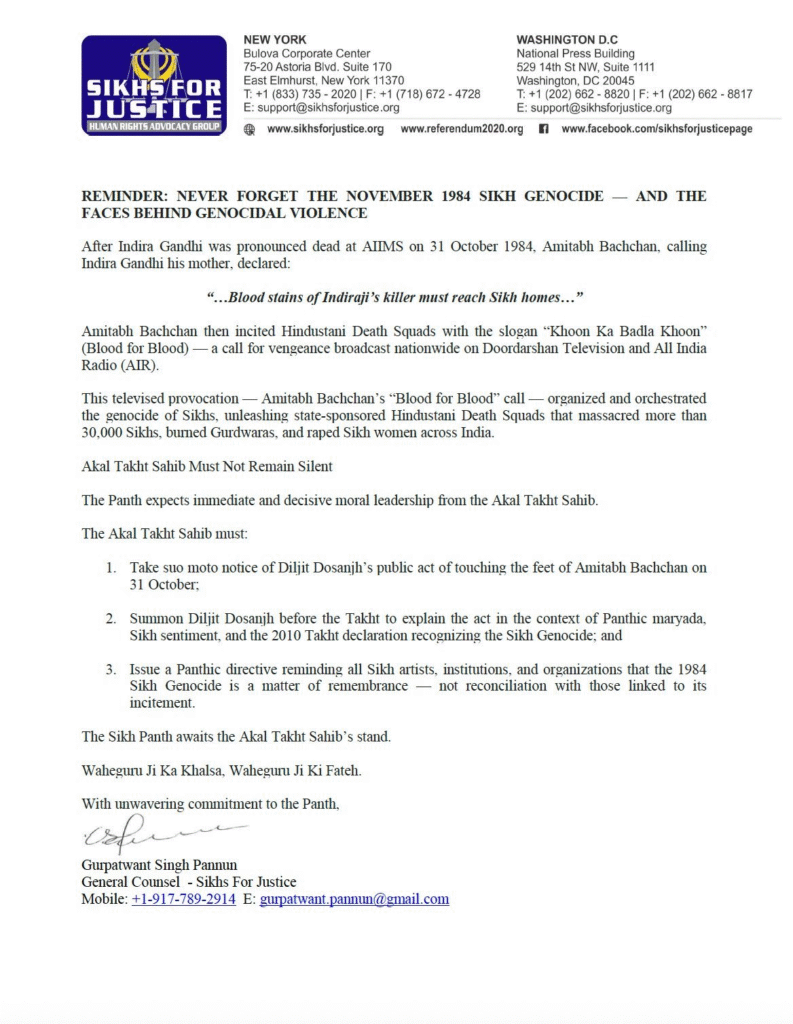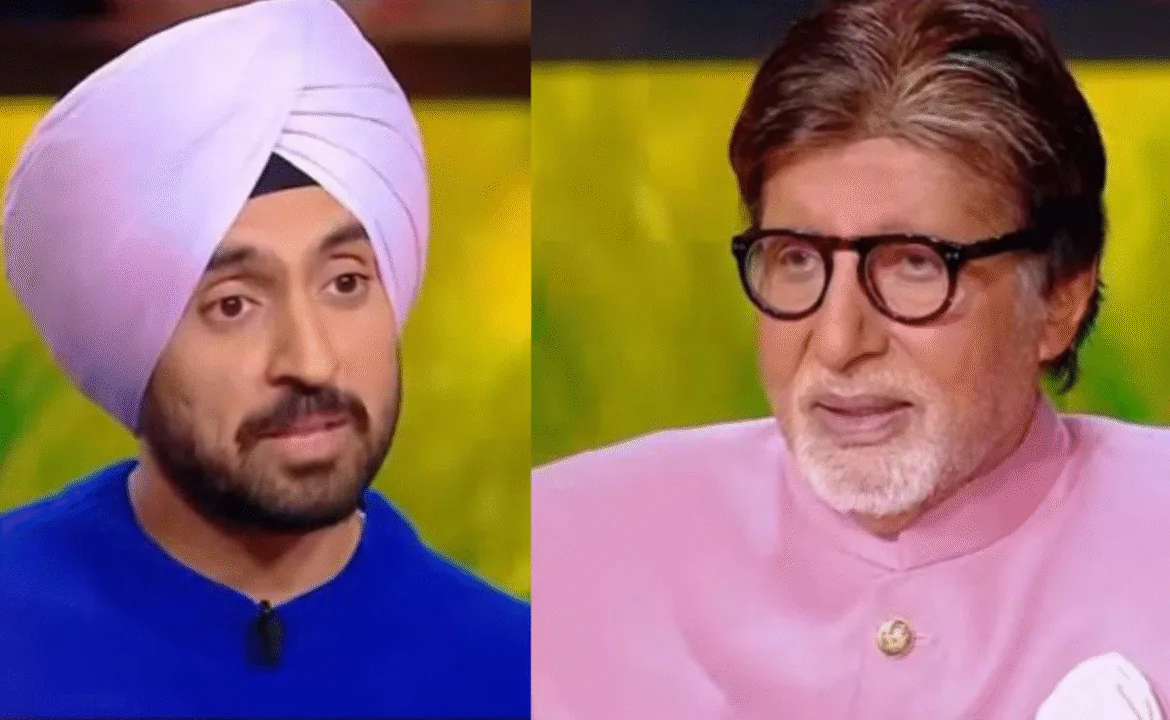AI Generated Summary
- A fresh controversy erupted after the Khalistan extremist Sikhs for Justice (SFJ) issued a public threat to acclaimed Punjabi singer and actor Diljit Dosanjh, accusing him of betraying the separatist cause and aligning with “Indian nationalism.
- His Coachella performance, where he proudly wore a turban on one of the world’s biggest stages, became a moment of collective pride for Sikh youth from London to Los Angeles.
- Earlier this year, he made history as the first Indian artist to perform at Coachella, the world’s most-watched music festival held in California, drawing thunderous applause for seamlessly blending Punjabi folk rhythms with global pop sensibilities.
A fresh controversy erupted after the Khalistan extremist Sikhs for Justice (SFJ) issued a public threat to acclaimed Punjabi singer and actor Diljit Dosanjh, accusing him of betraying the separatist cause and aligning with “Indian nationalism.” The threat by SFJ’s self-exiled chief Gurpatwant Singh Pannun has drawn widespread condemnation from leaders, artists, and civil society groups who see it as an attack on one of India’s most globally recognised cultural icons.

Diljit Dosanjh, 40, has often been celebrated as a symbol of contemporary Punjabi pride—an artist who has carried the state’s music and identity far beyond India’s borders. Earlier this year, he made history as the first Indian artist to perform at Coachella, the world’s most-watched music festival held in California, drawing thunderous applause for seamlessly blending Punjabi folk rhythms with global pop sensibilities.
Born in Dosanjh Kalan, Jalandhar, Diljit rose from small-town performances to dominate the film and music industries simultaneously. His international breakthrough turned him into a cultural bridge, introducing millions to the sound, language, and spirit of Punjab. The SFJ’s threat, many say, is a reflection of frustration at his refusal to politicize his identity or align with divisive agendas.
Punjab Police chief Gaurav Yadav confirmed that surveillance has been tightened around key artists who may face intimidation from separatist outfits abroad. “The SFJ operates mainly through digital channels and expatriate sympathizers,” Yadav said. “We are tracking their communication networks and coordinating with international agencies.”
Across India’s entertainment industry, solidarity messages poured in. Actor Amrinder Gill called the threat “petty and cowardly,” while Bollywood director Karan Johar—who has worked with Diljit on several films—described him as “a true ambassador of Indian creativity.” Several Punjabi singers, including Gurdas Maan and Sunanda Sharma, also spoke out, urging fans to reject extremist narratives that aim to divide the community.
On social media, hashtags such as #StandWithDiljit and #PrideOfPunjab began trending within hours. Many users contrasted Diljit’s contributions—uniting global audiences through art—with SFJ’s attempts to exploit faith for political gain.
Beyond music, Diljit Dosanjh represents an evolving face of Sikh identity—rooted in tradition yet fluent in global culture. His Coachella performance, where he proudly wore a turban on one of the world’s biggest stages, became a moment of collective pride for Sikh youth from London to Los Angeles. Critics note that SFJ’s hostility largely stems from this assertive, apolitical positioning, which appeals to diaspora Sikhs uninterested in separatism.
Cultural historian Harinder Singh, co-founder of the Sikh Research Institute, remarked that the SFJ attack exposes a deeper insecurity. “What Diljit stands for is confidence without anger,” he explained. “He doesn’t shout slogans; he sings them into joy. That’s precisely what separatists can’t handle.”
For now, Dosanjh has not publicly responded to the threat. His representatives say he remains focused on his music and upcoming international tour. Yet the incident underscores how cultural figures—especially those representing India’s pluralist ethos—are increasingly targeted in the digital age by radical voices seeking to hijack identity for politics.
As one fan wrote on X: “Diljit’s music unites the world. SFJ’s hate divides it. The choice is clear.”




